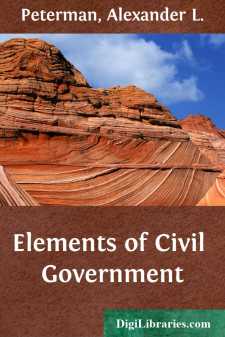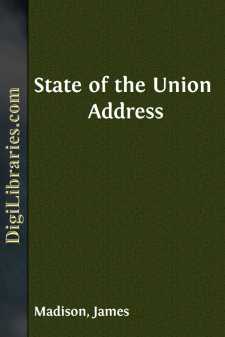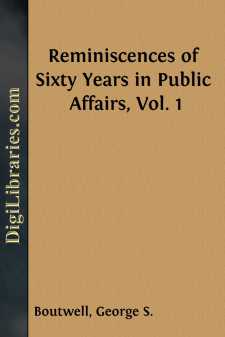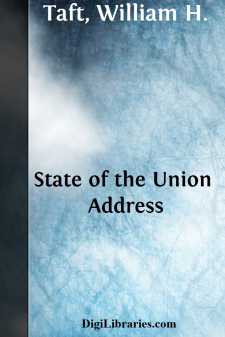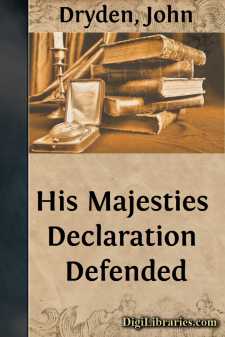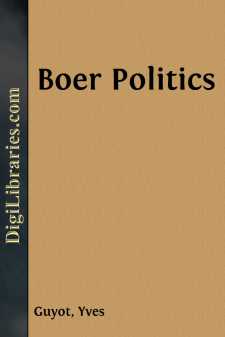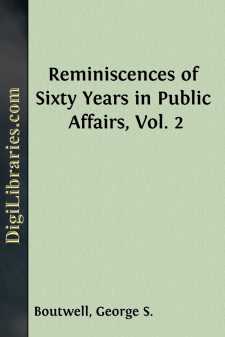Political Science
- Conspiracy & Scandal Investigations 1
- Constitutions 7
- Economic Conditions 10
- General 46
- Government 6
- History & Theory
- Peace 1
History & Theory Books
Sort by:
INTRODUCTION Niccolo Machiavelli, the first great Italian historian, and one of the most eminent political writers of any age or country, was born at Florence, May 3, 1469. He was of an old though not wealthy Tuscan family, his father, who was a jurist, dying when Niccolo was sixteen years old. We know nothing of Machiavelli's youth and little about his studies. He does not seem to have received...
more...
CHAPTER I. INTRODUCTORY.[1]--People living in the United States owe respect and obedience to not less than four different governments; that is, to four forms of organized authority. They have duties, as citizens of a township or civil district, as citizens of a county, as citizens of some one of the States, and as citizens of the United States. All persons are, or have been, members of a family; some...
more...
JEFFERSON AS A TACTICIAN The word "tactician" is usually applied to military movements, but it has a broader meaning than this; it embodies the idea of a peculiar skill or faculty—a nice perception or discernment which is characterized by adroit planning or management, artfully directed in politics or diplomacy in government. "Of all creatures the sense of tact is most exquisite in...
more...
by:
James Madison
Fellow-Citizens of the Senate and House of Representatives: At the period of our last meeting I had the satisfaction of communicating an adjustment with one of the principal belligerent nations, highly important in itself, and still more so as presaging a more extended accommodation. It is with deep concern I am now to inform you that the favorable prospect has been over-clouded by a refusal of the...
more...
INTRODUCTION At the request of my daughter and my son and by the advice of my friends, the Honorable J. C. Bancroft Davis and the Honorable William A. Richardson, I am venturing upon the task of giving a sketch of my experiences in life during three fourths of a century. The wisdom of such an undertaking is not outside the realm of debate. A large part of my manhood has been spent in the politics of my...
more...
by:
William H. Taft
The relations of the United States with all foreign governments have continued upon the normal basis of amity and good understanding, and are very generally satisfactory. EUROPE. Pursuant to the provisions of the general treaty of arbitration concluded between the United States and Great Britain, April 4, 1908, a special agreement was entered into between the two countries on January 27, 1909, for the...
more...
by:
Allen Johnson
CHAPTER I JACKSON THE FRONTIERSMAN Among the thousands of stout-hearted British subjects who decided to try their fortune in the Western World after the signing of the Peace of Paris in 1763 was one Andrew Jackson, a Scotch-Irish Presbyterian of the tenant class, sprung from a family long resident in or near the quaint town of Carrickfergus, on the northern coast of Ireland, close by the newer and more...
more...
by:
John Dryden
INTRODUCTION Wherever English literature is studied, John Dryden is recognized as the author of some of the greatest political satires in the language. Until recently the fact has been overlooked that before he wrote the first of these satires, Absalom and Achitophel, he had entered the political arena with the prose tract here reproduced. The proof that the Historiographer Royal contributed to the...
more...
by:
Yves Guyot
INTRODUCTION. A word in explanation of this English edition is perhaps not unnecessary. It will be remembered that the arguments in the following pages appeared originally in the columns of Le Siècle, and from the correspondence between M. Yves Guyot and Dr. Kuyper and M. Brunetière (Appendix B), the reader will understand how the publication of Le Siècle articles in pamphlet form arose. In the...
more...
My election to Congress in 1862 was contested by Judge Benjamin F. Thomas, who was then a Republican member from the Norfolk district. The re-districting of the State brought Thomas and Train into the same district. I was nominated by the Republican Convention, and Thomas then became the candidate of the "People's Party," and at the election he was supported by the Democrats. His course in...
more...



